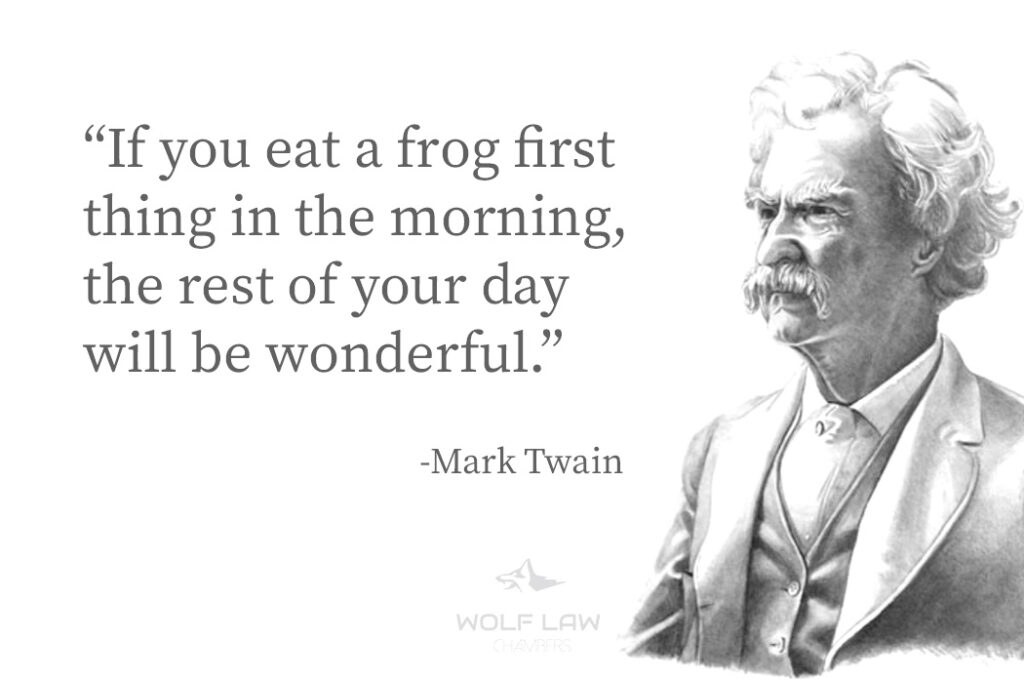WELLBEING
Building Your Brand: How an Office Address in a Prestigious Location Boosts Credibility
In today’s fast-paced business landscape, first impressions often set the tone for future relationships. Whether you’re a budding entrepreneur, a small business owner, or part of a growing enterprise, your office address is more than just a logistical necessity—it’s a strategic asset.
Why Location Matters
When potential clients or partners assess your brand, they consider your reputation, services, and—surprisingly—your location. An office in a prestigious or recognizable area instantly conveys professionalism, success, and trustworthiness. It shows that you’re serious about your business and ready to deliver top-notch services.
The Psychological Edge
A prime location creates a perception of quality. For example, an office in a financial hub like Wall Street or a creative district like Silicon Valley speaks volumes about your industry alignment and ambition. This can influence how stakeholders perceive your capabilities, even before you’ve spoken a word.
Networking Opportunities
Prestigious locations are often bustling with like-minded professionals, innovative companies, and thought leaders. Being in the heart of such activity can open doors to partnerships, collaborations, and learning opportunities that may not be as accessible elsewhere.
Client Convenience
An easily accessible and prominent address reassures clients that they’re dealing with an established and reliable entity. It’s a subtle yet powerful way to enhance their confidence in your brand.
Alternatives for Small Businesses
If renting an office in a high-profile location feels out of reach, consider options like co-working spaces or virtual office services. These solutions provide the same address benefits without the financial burden of traditional leases.
The Takeaway
Your office location isn’t just where you work; it’s a key part of your branding strategy. Choosing a prestigious address can elevate your credibility, attract clients, and position you as a leader in your field.
Remember, building your brand is a combination of small yet impactful choices. An address is one of them, and it could be the one that sets you apart from the competition.
What’s your experience with location and branding? Let’s discuss in the comments!
The Crucial Connection: How a Fitness Centre Near Your Office Can Benefit Lawyers and Their Health
In the fast-paced world of law, where time is a precious commodity and stress is often a constant companion, maintaining one’s health can sometimes take a back seat. Yet, prioritizing health and fitness is not just about physical well-being; it’s also about enhancing mental clarity, improving focus, and ultimately, optimizing productivity. For lawyers, whose profession demands peak performance both in mind and body, having a fitness center close to the office can be a game-changer. Let’s explore how:
Stress Reduction
The legal profession is notorious for its high-stress environment. Deadlines, demanding clients, and the weight of responsibility can all take their toll. Regular exercise is a proven stress-reliever, releasing endorphins that combat stress hormones like cortisol. Having a fitness center conveniently located near the office makes it easier for lawyers to incorporate exercise into their daily routine, providing a much-needed outlet for stress management.
Time Efficiency
Lawyers often find themselves working long hours, leaving little time for personal pursuits like exercise. A fitness center close to the office eliminates the need for lengthy commutes to the gym, saving precious time that can be better utilized. Whether it’s a quick lunchtime workout or a post-work stress-relieving session, having a fitness center nearby ensures that lawyers can squeeze in exercise without disrupting their busy schedules.
Improved Health and Well-being
Sedentary lifestyles are a common occupational hazard for lawyers, who spend much of their day sitting behind desks or in courtrooms. This lack of physical activity can lead to a host of health issues, including obesity, cardiovascular problems, and musculoskeletal disorders. A conveniently located fitness center encourages lawyers to prioritize their health by making exercise more accessible. From cardio machines to weightlifting equipment to group fitness classes, these facilities offer a variety of options to suit individual preferences and fitness goals.
Enhanced Productivity and Focus
Regular exercise has been shown to boost cognitive function, memory, and concentration—qualities that are indispensable for lawyers grappling with complex legal issues. By incorporating exercise into their routine, lawyers can sharpen their mental acuity, making them more effective advocates for their clients. Additionally, physical activity promotes better sleep quality, which is essential for cognitive function and overall well-being. A well-rested, energized lawyer is better equipped to tackle the challenges of the day with clarity and focus.
Networking and Social Interaction
A fitness center near the office not only promotes physical health but also fosters a sense of community among colleagues. Exercising together can strengthen bonds between lawyers, creating opportunities for networking and social interaction outside of the workplace. Building relationships in a more relaxed setting can enhance teamwork, collaboration, and morale within the firm.
In conclusion, the benefits of having a fitness center close to the office extend far beyond physical fitness. For lawyers, whose profession demands mental acuity, resilience, and stamina, prioritizing health and well-being is essential for long-term success. By providing a convenient outlet for stress relief, promoting time efficiency, improving health outcomes, enhancing productivity, and fostering social connections, a nearby fitness center can be a valuable asset for lawyers striving to achieve a healthy work-life balance. So next time you’re drafting a contract or preparing for trial, remember that a quick workout may be just what the lawyer ordered.
Are You Always Running Out of Time?
Are the current standards you have set in place the most efficient and viable in achieving your goals? Are you finding the right balance between your work and personal lives? Are you always pushing back deadlines and rescheduling matters? These are some of the questions you must ask yourself when assessing your legal practice. For lawyers, time is of the essence, no pun intended. They must prioritize their schedules in order to complete tasks on their daily agenda. There is always a constant influx of tasks and prioritization means everything when your most important assignment could be the next one you receive. Having the right skillset, tools, balance, flexibility, and procedures in place can simplify even the most complex matters allow lawyers to execute their plans proficiently. Such practices enable a firm to become more productive and this increased productivity is inevitably going to result in increased profits.
Let’s examine a billing trend report to determine how much billable time lawyers are actually getting out of their workday. Lawyers are working long hours to meet productivity goals but are only billing for 29% of their workday on average [1]. There is definitely a discrepancy in this figure and how occupied a typical lawyer’s schedule is. That means legal professionals are spending time carrying out tasks that do not equate to billable time. These tasks include, but are not limited to, administrative functions that are required in running your practice. Law school teaches lawyers how to carry out legal work and put their valuable legal expertise to practice. It is this knowledge and capability that allows lawyers to bill their clientele and earn an honest living. Yet, all law firms include tasks which need to be performed in order for a practice to remain functional but are not billable.

A simple business principle that can be implemented is outsourcing these tasks and leaving more time for yourself to work on assignments which can generate billable time. Bookkeeping and office administrative tasks can take up large portions of a workday but by outsourcing them to staff and paying for a particular service, more time is left for lawyers to focus on the legal matters specific to their line of work.
In realizing the proper techniques that need to be applied for running a more efficient legal practice, a quote from Mark Twain came up numerous times.
If you eat a frog first thing in the morning, the rest of your day will be wonderful.
Mark Twain [2]
and
If you have to eat a frog, don’t look at it for too long.
Mark Twain [2]

It is important to note that certain tasks can be daunting, and lawyers may push them back because they may take up most of their day. According to Twain, it is these tasks that could hold one back. Complete your most difficult assignment first thing in the morning, and suddenly, the other tasks become minute and less challenging. In doing so, you are able to prioritize your assignments, and create to-do lists for yourself in collaboration with your calendar [3].

Next, eliminating distractions will give you a sense of clarity in your work/practice. It is healthy to take breaks throughout your day and refresh but being unproductive is unjustifiable. Another healthy practice is taking care of your emotional and physical health. Being mentally and physically fit will contribute to your success just as much as your skillset and business intelligence will [4]. Being able to attract clients is not the sole determinate of success for a legal practice. It is equally important to be able to work on matters for those clients on a time efficient basis. If that includes taking a break, so be it. One should be open to the idea of stepping away from their work. Research shows that our brains are capable of solving problems while we are not actively working on them [5]. Hence, stepping away from your practice may, in fact, prove to be more beneficial than harmful.
Implementing technology may also prove to be an effective practice tool in time management. Using the most adept practice management software, communication tools, and digital services can lighten the burden on you and allow you to allocate time more freely. That simple advantage separates those attorneys who surrender focus on one aspect of their work and those who are all over the place.
A workspace committed to providing lawyers with the excellent communication tools and services to improve efficiency, is that of Wolf Law Chambers. Located in the heart of Mississauga, the chambers aids lawyers through the administrative aspects of their practice. This helps facilitate growth and expansion for the lawyers in their area of practice. Come in and see for yourself how Wolf Law Chambers is innovating time management in the practice of law. Visit us as 90 Matheson Blvd. West, Suite 101 and feel free to join us for all our upcoming events and workshops.

-Narvir Goindi
Mental health and wellbeing in the legal profession
In a profession that demands for you to be meticulous throughout every moment of your day, there is an enormous amount of pressure that undeniably exists. Can the continuous pressure of rushed deadlines, liabilities for oneself and others, dreadfully long work hours, stiff competition, dismissal of emotion from sensitive client matters, isolation, and/or sleep deprivation take a toll on a lawyer’s mental health and wellbeing? They most definitely can! The legal profession is one that requires psychological stability, but mental health is often neglected by those in the profession.
Lawyers are typically immersed in the vocational and theoretical aspects of their trade but are not equipped with the tools to maintain balance and focus in high stress professional environments [1]. In order to address the situation, professionals must concur to destigmatize the current views surrounding mental health. Only then can we open the door for discussion, resolution, and change the status quo.
Former President of the American Bar Association (ABA) had the following to say:
Lawyers, judges and law students are faced with an increasingly competitive and stressful profession. Studies show that substance use, addiction, and mental disorders, including depression and thoughts of suicide—often unrecognized—are at shockingly high rates [1].
Former President of the American Bar Association (ABA)
These findings are not surprising considering the daunting challenges that surround the legal profession. About 44% of lawyers recently surveyed by the ABA said that they would not recommend their profession to a young person [2]. That is quite the irony, now isn’t it; diving into a career path that you would advise others not to partake in. It is vital to understand why the profession has become so toxic and why lawyers are among the top three professionals to face substance abuse issues [2]. Only by doing so, can we develop solutions and coping mechanisms which may build resiliency amongst lawyers and prepare them to tackle stressors more effectively. Neglecting the data and the stigmatization of such health concerns is not going to solve the issue at hand, and has probably done more harm than good.

In order to address a problem, its existence must first be acknowledged. Only then, can we proceed with devising a solution and executing it to the fullest extent available. Approximately 58% of lawyers in Canada have faced stress and burnout, 48% have experienced anxiety, and 26% have experienced depression [3]. These statistics were derived from a survey conducted in 2012 but they are not irrelevant to the concern that exists in the profession regarding mental health today. Lawyers are definitely on the edge with the type of matters they deal with on the daily and it may be of benefit to implement coping mechanisms to prevent such conditions of stress/burnout, anxiety, and depression. On April the 6th of this year, the Canadian Bar Association hosted its first-ever Health and Wellness Conference, a pivotal step in the right direction [3]. The conference dove into some of the most pressing issues faced by lawyers with an emphasis placed on mental health concerns. Traditionally, those in the legal field had turned a blind eye to the day to day stresses involved with their jobs, and the potential detrimental effects they had on the psychological well being of individuals. But as more awareness continues to be raised, lawyers will realize that they are definitely not facing these issues alone, creating room for the discussion and implementation of preventative measures.
Some practices include, but are not limited to, adequate sleep, exercise, external support, social participation, vacations/extended breaks, mindfulness, flexibility, workload management, and/or seeking professional help [4]. The definition of mindfulness, as written in the Oxford Dictionary of English is, “A mental state achieved by focusing one’s awareness on the present moment, while calmly acknowledging and accepting one’s feelings, thoughts, and bodily sensations, used as a therapeutic technique [5].” To dwell in the present and acknowledge one’s mental and physical state of being constitutes to being mindful. In doing so, one is able to immediately understand how they feel, and asses if there is need to take action. Once that is taken care of, there are many coping mechanisms that can be put to practice. Rest is definitely vital in performance and sometimes you may have to step away from your professional practice to take a break and revitalise your mind and body [4]. Speaking to loved ones can lessen the burden and help get a load off your chest. It has even proven to reduce the body’s physiological response to stressful events [4]. Lawyers can speak to loved ones, whose opinions they regard and weigh considerably, to help them cope with a dilemma. If that does not work to any avail, they can always pursue the services of a certified mental health professional. There are many support groups, within and outside the legal community, where they can get aid. Next, remaining flexible allows one to meet the shifting demands of their environment [4]. This is definitely relevant for lawyers who deal with a variety of complex matters. Focusing solely on the aspects of a situation you can reasonably expect to influence, paves the way for the process of eliminating things that may induce stress [4]. Last, but definitely not the least important, is the ability to manage one’s workload. Do not overload your schedule with client files and matters you cannot handle. It is completely rational to ask for help and outsource your work to create balance and become more efficient. Schedule yourself in such a manner that you can handle your workload and balance life outside of work. Do not be overwhelmed, so that you give yourself more openings to remain stressed.
To conclude, mental health is a serious concern for lawyers and legal professionals alike. If you ever feel that coping with adversity is too formidable a task, please seek help immediately! Remain mindful of your physiological and mental well being, acknowledging any negative changes in mood, behaviour, and habits. Then, carefully cultivate and strategize techniques to cope with such changes. You may be able to do so using techniques already in place or by seeking professional help. The Canadian Bar Association’s Legal Profession Assistance Conference (LPAC) says that they are, “Dedicated to helping lawyers, judges and law students and their families with personal, emotional, health and lifestyle issues through a network of Lawyer Assistance Programs, a national 24-hour helpline and through provincial programs [4].” Do not neglect your mental health and wellbeing! Please take initiative and use these resources which are so readily available.
[1] Lefkowitz, Dena. ‘Investing in Lawyer Well-Being-Why It Matters’, (2019), The Legal Intelligencer. https://www.law.com/thelegalintelligencer/2019/08/14/investing-in-lawyer-well-being-why-it-matters/ [2] Kane, Sally. ‘The 10 Challengers About a Career As a Lawyer’ (2019) the balance careers. https://www.thebalancecareers.com/lawyer-career-drawbacks-2164594 [3] Ashley Pollack, Candice. ‘Mental health in the legal profession: Are we asking the right questions’ (2019) The Canadian Bar Association. https://www.cba.org/Sections/Young-Lawyers/Articles/2019/Mental-health-in-the-legal-profession-Are-we-aski [4] Kelly, Owen. ‘Coping with Stress and Avoiding Burnout: Techniques for Lawyers’. (2009) The Canadian Bar Association. https://www.cba.org/Publications-Resources/CBA-Practice-Link/Work-Life-Balance/Health-Wellness/Coping-with-Stress-and-Avoiding-Burnout-Techniques [5] Oxford Dictionary of English. 3d ed. Sub verbo. ‘Mindfulness’.-Narvir Goindi




